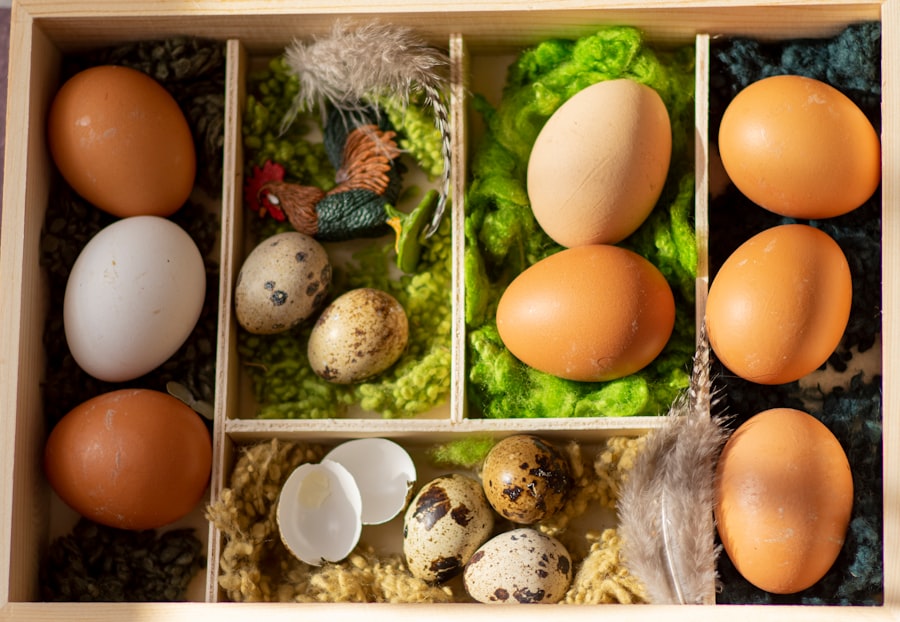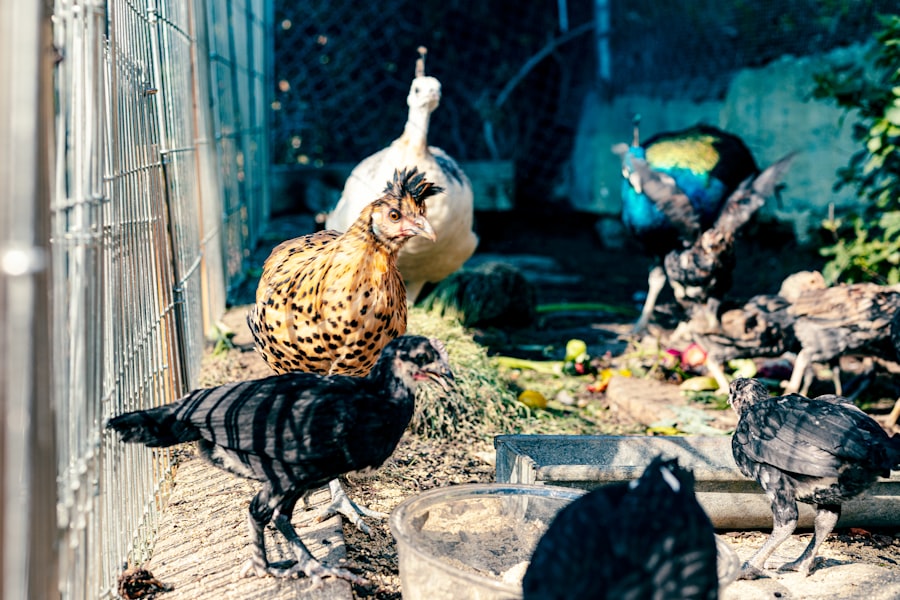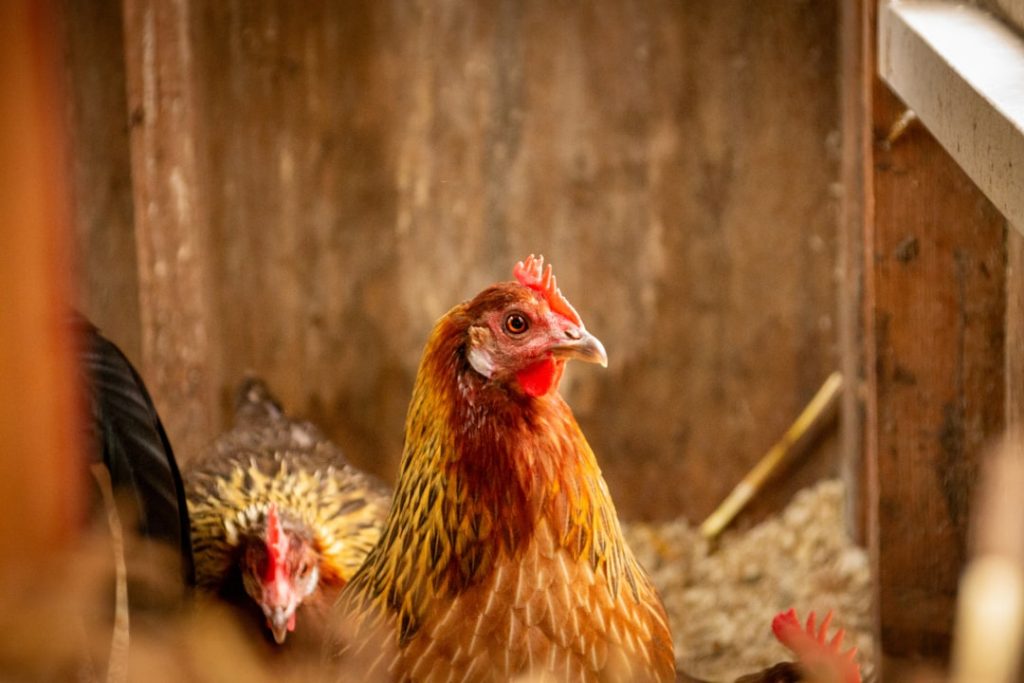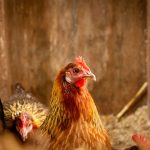When starting a farm, the initial investment is a critical factor to consider. This includes the acquisition of land, construction of buildings, and purchase of equipment. Land prices vary significantly based on location, soil quality, and acreage.
Careful research is necessary to select an optimal location, taking into account climate conditions, market accessibility, and resource availability. Infrastructure investments include buildings such as barns, coops, and storage facilities. The cost of these structures depends on materials, size, and additional features like insulation or ventilation systems.
Equipment such as tractors, plows, and irrigation systems are essential for efficient farm operations and represent a substantial portion of the initial investment. The purchase of livestock or seeds is another crucial expenditure. Livestock costs vary based on animal type, breed, age, and health.
Selecting animals with good genetics and health is vital for farm success. For crop farms, high-quality seeds and planting materials are significant initial expenses that directly impact harvest outcomes. Farm infrastructure also encompasses the construction or renovation of various facilities.
The cost of these structures varies depending on size, materials, and additional features. Equipment investments, while substantial, are necessary for productive operations. While the initial investment for starting a farm can be considerable, thorough planning and research can help ensure long-term profitability and success.
Table of Contents
- 1 Housing and Equipment
- 2 Feed and Supplements
- 3 Veterinary Care
- 4 Utilities
- 5 Licensing and Permit Costs
- 6 Miscellaneous Expenses
- 7 FAQs
- 7.1 What are the initial costs of keeping chickens in Iowa?
- 7.2 What are the ongoing costs of keeping chickens in Iowa?
- 7.3 How much does chicken feed cost in Iowa?
- 7.4 Are there any legal or permit costs associated with keeping chickens in Iowa?
- 7.5 What are the potential medical costs for chickens in Iowa?
- 7.6 Are there any other costs to consider when keeping chickens in Iowa?
Key Takeaways
- Initial investment in starting a farm includes purchasing land, buildings, and equipment.
- Housing and equipment costs include building barns, coops, and purchasing feeding and watering systems.
- Feed and supplements are ongoing expenses that need to be budgeted for, including hay, grain, and mineral supplements.
- Veterinary care is essential for the health of the animals and includes vaccinations, deworming, and emergency care.
- Utilities such as water, electricity, and heating are ongoing expenses that need to be factored into the budget.
- Licensing and permit costs vary by location and may include business licenses, zoning permits, and environmental permits.
- Miscellaneous expenses can include marketing, insurance, and transportation costs.
Housing and Equipment
Livestock Housing
Livestock farms require appropriate housing for animals such as barns, coops, and shelters. The cost of these structures can vary depending on factors such as size, materials used, and any additional features such as insulation or ventilation systems. It’s important to provide comfortable and safe housing for your animals to ensure their health and well-being.
Farm Equipment
In addition to housing, farms also require a range of equipment to support daily operations. This can include items such as tractors, plows, irrigation systems, and feeding equipment. The cost of this equipment can vary depending on factors such as size, brand, and any additional features or attachments. Investing in high-quality equipment is essential for efficient and productive farm operations.
Crop Farm Equipment and Storage
Crop farms also require appropriate housing for equipment such as tractors, plows, and irrigation systems. The cost of this equipment can be a significant investment, but is crucial for efficient and productive operations. In addition to equipment, crop farms also require storage facilities for harvested crops. This can include items such as silos or storage sheds. The cost of these structures can vary depending on factors such as size, materials used, and any additional features such as insulation or ventilation systems.
Overall, housing and equipment are essential components of any successful farm operation. Investing in high-quality housing and equipment is crucial for ensuring the long-term success of your farm.
Feed and Supplements

Feed and supplements are essential expenses for any livestock farm. The cost of feed will depend on factors such as the type and breed of animal, as well as their age and nutritional needs. It’s important to provide high-quality feed to ensure the health and productivity of your animals.
In addition to feed, supplements such as vitamins and minerals may be necessary to ensure that your animals receive all the nutrients they need. The cost of supplements can vary depending on factors such as type, brand, and dosage. It’s important to carefully research and choose the best feed and supplements for your animals to ensure their health and well-being.
For crop farms, the cost of seeds and planting materials is a major expense. It’s important to choose high-quality seeds and materials to ensure a successful harvest. In addition to seeds, fertilizers and pesticides may be necessary to support crop growth and protect against pests and diseases.
The cost of these materials can vary depending on factors such as type, brand, and application rates. It’s important to carefully research and choose the best feed and supplements for your crops to ensure a successful harvest. Overall, feed and supplements are essential expenses for any farm operation.
Investing in high-quality feed and supplements is crucial for ensuring the health and productivity of your animals or crops.
Veterinary Care
Veterinary care is an essential expense for any livestock farm. Regular check-ups and vaccinations are crucial for ensuring the health and well-being of your animals. The cost of veterinary care will depend on factors such as the type and breed of animal, as well as their age and any specific health concerns.
It’s important to establish a good relationship with a trusted veterinarian who can provide regular care for your animals. In addition to regular check-ups, veterinary care may also be necessary in case of illness or injury. The cost of emergency veterinary care can vary greatly depending on the nature of the illness or injury, as well as any necessary treatments or medications.
For crop farms, pest control is an important aspect of veterinary care. Pesticides may be necessary to protect crops against pests and diseases. The cost of pesticides can vary depending on factors such as type, brand, and application rates.
It’s important to carefully research and choose the best pest control methods for your crops to ensure a successful harvest. Overall, veterinary care is an essential expense for any farm operation. Investing in regular check-ups and appropriate treatments is crucial for ensuring the health and well-being of your animals or crops.
Utilities
Utilities are an essential expense for any farm operation. This includes costs such as electricity, water, heating, and cooling. The cost of utilities will depend on factors such as the size of your operation, the type of animals or crops you are raising, and any additional facilities or equipment you may have.
It’s important to carefully monitor your utility usage and look for ways to reduce costs where possible. This can include measures such as energy-efficient lighting or heating systems, water-saving technologies, or renewable energy sources such as solar panels or wind turbines. In addition to traditional utilities, farms may also have additional expenses such as waste disposal or recycling services.
The cost of waste disposal will depend on factors such as the type and amount of waste produced by your operation. It’s important to carefully manage waste disposal to ensure compliance with environmental regulations while minimizing costs where possible. Overall, utilities are an essential expense for any farm operation.
It’s important to carefully monitor your utility usage and look for ways to reduce costs where possible.
Licensing and Permit Costs

Understanding Licensing and Permit Expenses
Licensing and permit costs are a crucial expense for any farm operation. These costs encompass various expenses such as business licenses, permits for building or land use, environmental permits, and animal welfare certifications. The cost of licensing and permits depends on factors such as the size of your operation, the type of animals or crops you are raising, and any specific regulations or requirements in your area.
Compliance with Regulations and Certifications
It is essential to carefully research and comply with all necessary licensing and permit requirements to ensure that your operation is legal and compliant with all regulations. In addition to traditional licensing and permits, farms may also have additional expenses such as certifications for organic or sustainable farming practices. The cost of these certifications depends on factors such as the type of certification you are seeking, any specific requirements or audits involved, and any ongoing fees for maintaining certification status.
Ensuring Sustainability and Organic Production
It is crucial to carefully research and comply with all necessary certifications to ensure that your operation meets industry standards for sustainability or organic production. Overall, licensing and permit costs are an essential expense for any farm operation. It is vital to carefully research and comply with all necessary requirements to ensure that your operation is legal and compliant with all regulations.
Miscellaneous Expenses
In addition to the major expenses outlined above, there are a range of miscellaneous expenses that are essential for running a successful farm operation. This can include costs such as insurance premiums for property or liability coverage, taxes on property or income, legal fees for contracts or agreements, or marketing expenses for promoting your products or services. The cost of these miscellaneous expenses will depend on factors such as the size of your operation, the type of animals or crops you are raising, any specific regulations or requirements in your area, or any specific marketing strategies you may be pursuing.
In addition to traditional miscellaneous expenses, farms may also have additional costs such as labor or training expenses for employees or family members involved in running the operation. The cost of labor will depend on factors such as the size of your operation, the type of work involved, any specific skills or experience required by employees or family members involved in running the operation. It’s important to carefully manage labor costs while ensuring that you have enough skilled workers to support efficient operations.
Overall, miscellaneous expenses are an essential aspect of running a successful farm operation. It’s important to carefully budget for these expenses while looking for ways to reduce costs where possible without compromising the quality or productivity of your operation. In conclusion, starting a farm requires a significant initial investment in land, buildings, equipment, livestock or seeds.
Housing and equipment are essential components that require careful planning and investment in high-quality structures and machinery. Feed and supplements are crucial expenses that directly impact the health and productivity of livestock or crops on a farm. Veterinary care is an essential aspect that ensures the health and well-being of animals or crops through regular check-ups and treatments when necessary.
Utilities are an ongoing expense that includes electricity, water heating/cooling costs which need careful monitoring to reduce expenses where possible without compromising operations quality.
Licensing permits costs are essential expenses that need careful compliance with all necessary requirements.
Miscellaneous expenses include insurance premiums taxes legal fees marketing expenses labor/training costs which need careful budgeting while looking for ways to reduce costs without compromising operations quality.
Starting a farm requires careful planning budgeting investment in high-quality resources while looking for ways to reduce costs where possible without compromising operations quality.
If you’re considering keeping chickens in Iowa, you may also be interested in learning about the cost of building a chicken coop. Poultry Wizard has a helpful article on chicken coop portage and chicken coop Chester SC that provides valuable information on the expenses involved in constructing a coop for your feathered friends. Additionally, their article on how to insulate a chicken coop may also be beneficial for Iowa residents looking to keep their chickens comfortable during the colder months.
FAQs
What are the initial costs of keeping chickens in Iowa?
The initial costs of keeping chickens in Iowa include purchasing a coop, feeders, waterers, bedding, and of course, the chickens themselves. These costs can vary depending on the size of the coop and the number of chickens you plan to keep.
What are the ongoing costs of keeping chickens in Iowa?
The ongoing costs of keeping chickens in Iowa include purchasing chicken feed, bedding, and any necessary medical care for the chickens. Additionally, there may be costs associated with maintaining the coop and replacing any worn-out equipment.
How much does chicken feed cost in Iowa?
The cost of chicken feed in Iowa can vary depending on the type of feed and the quantity purchased. On average, a 50-pound bag of chicken feed can cost between $15 to $30.
Are there any legal or permit costs associated with keeping chickens in Iowa?
In Iowa, some cities and counties may have regulations or permit requirements for keeping chickens. It’s important to check with local authorities to determine if there are any legal or permit costs associated with keeping chickens in your area.
What are the potential medical costs for chickens in Iowa?
The potential medical costs for chickens in Iowa can include vaccinations, deworming, and treatment for common poultry illnesses. It’s important to budget for these potential costs and establish a relationship with a veterinarian who is knowledgeable about poultry care.
Are there any other costs to consider when keeping chickens in Iowa?
Other costs to consider when keeping chickens in Iowa may include predator-proofing the coop, purchasing supplemental heat or lighting for the winter months, and any additional equipment or supplies needed for the care and maintenance of the chickens.
Meet Walter, the feathered-friend fanatic of Florida! Nestled in the sunshine state, Walter struts through life with his feathered companions, clucking his way to happiness. With a coop that’s fancier than a five-star hotel, he’s the Don Juan of the chicken world. When he’s not teaching his hens to do the cha-cha, you’ll find him in a heated debate with his prized rooster, Sir Clucks-a-Lot. Walter’s poultry passion is no yolk; he’s the sunny-side-up guy you never knew you needed in your flock of friends!







